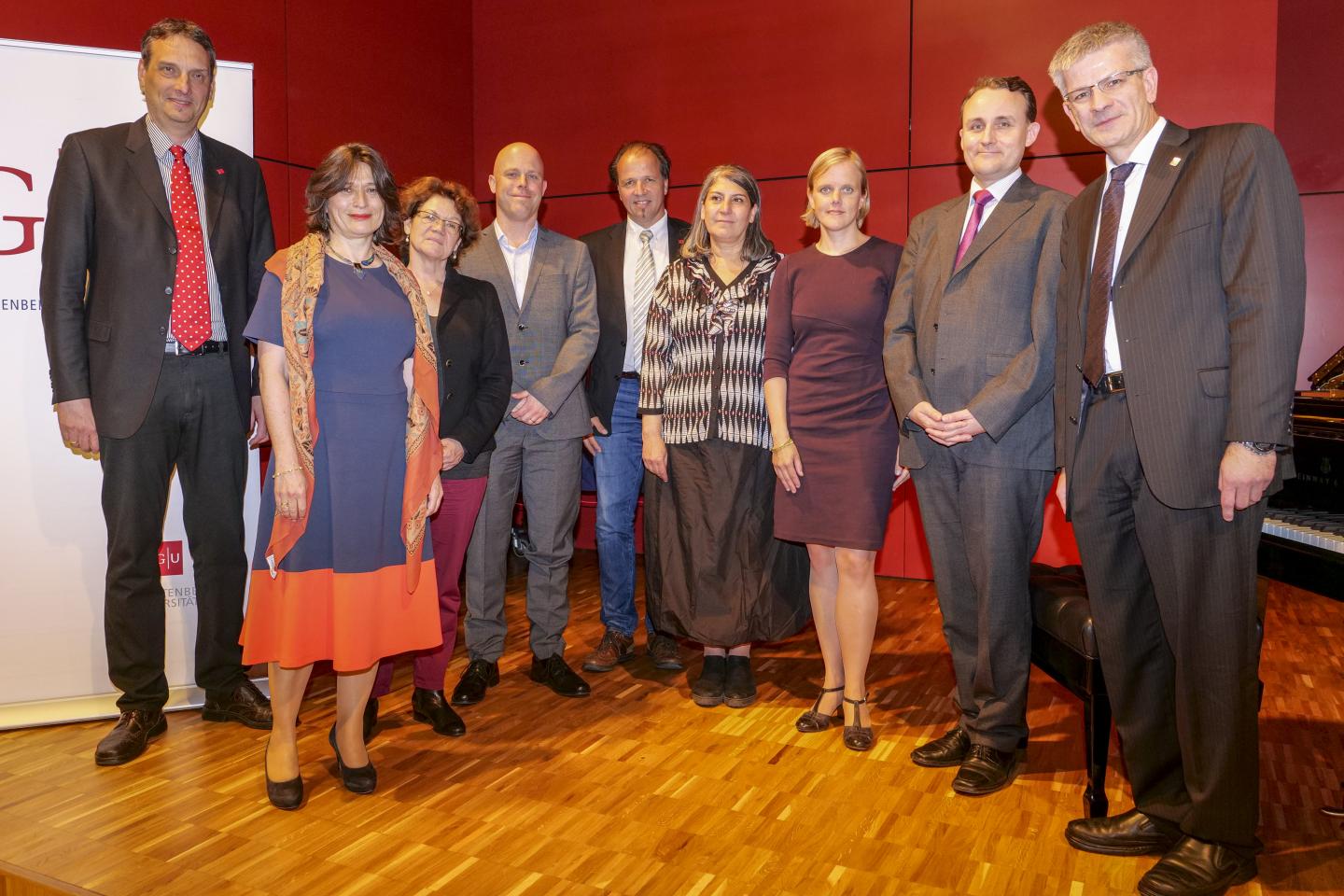Annual celebration of the Gutenberg Research College / Public lectures by Corine Defrance in Mainz

Credit: Photo: Stefan F. Sämmer
The Gutenberg Research College (GRC), the central institution for promoting top-level research at Johannes Gutenberg University Mainz (JGU), yesterday presented the 2019 Gutenberg Research Award and welcomed five new fellows. These events took place during the GRC’s annual celebration, which was held in the Mainz School of Music. This year’s Gutenberg Research Award, which is endowed with EUR 10,000, went to the French historian Professor Corine Defrance of the French Centre national de la recherche scientifique (CNRS) and Université Paris 1 Panthéon-Sorbonne, Sirice. The GRC gave the award to Defrance not only in recognition of the merit of her research into the history of the relationship between Germany and France, but also because of her special connections to Mainz and her commitment to providing support to young academics. Following the award ceremony, Corine Defrance will remain in Mainz until May 11 and participate in various events. She will be giving public lectures today at 6:00 p.m. at the Leibniz Institute of European History (IEG), and at 6:15 p.m. on May 8 and 8:15 a.m. on May 10 at JGU.
GRC fellows are outstanding scholars and artists at JGU and other universities. They receive GRC funding that enables them to particularly dedicate themselves to their research or art at JGU. The GRC currently supports 25 active fellows. Many of the GRC’s 36 alumni fellows still remain in contact with JGU through academic collaborations and GRC events.
The following five new fellows were officially welcomed during this year’s celebration:
- – Prof. Parastou Forouhar, Fine Arts, Mainz Academy of Fine Arts
– Prof. Boris Kaus, Geophysics, Johannes Gutenberg University Mainz
– Dr. Martina Krämer, Cloud Physics, Forschungszentrum Jülich
– Prof. Klaus Pietschmann, Musicology, Johannes Gutenberg University Mainz
– Prof. Marion Silies, Molecular Neurodevelopmental Biology, Johannes Gutenberg University Mainz.
This year the GRC is also awarding a so-called “homestretch” (“Zielgerade”) fellowship to Professor Wolfgang Zwickel of the Department of Old Testament Studies and Biblical Archaeology at JGU. The GRC provides these fellowships to facilitate the completion of large research or publication projects by making resources available to pay for teaching substitutes for the corresponding fellows for two or three semesters. “This enables the ‘homestretch’ fellows to focus all their attention during this period on completing a research project that is already in its final stages. During the end phase, it is particularly essential that all time and effort can be concentrated on the project to achieve completion at an excellent quality level,” said Professor Thomas Hieke, Director of the GRC.
Established in 2007 during the first phase of the Excellence Initiative of the German federal and state governments, the GRC is the oldest of what are now three strategic expert bodies for research, teaching, and the promotion of young academics. The GRC executive committee consists of outstanding researchers of Mainz University and cooperating research institutions together with students. It makes decisions on the awarding of GRC fellowships and advises the university administration and the faculties on aspects of strategy, such as the establishment of research units, the restructuring of institutes, and submissions to excellence competitions.
###
Media Contact
Dominik Bohl
[email protected]




